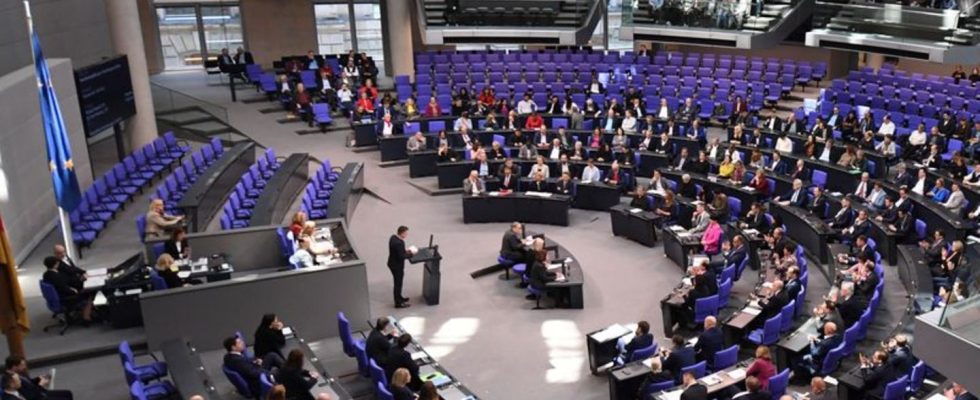Economic policy
Bundestag approves growth package – Union continues to oppose it
The controversial growth package was passed: 377 MPs voted for it. photo
© Serhat Kocak/dpa
The CDU and CSU met with little understanding with their blockade. Now the controversial growth package has been decided – in a slimmed-down form.
Before the vote, FDP parliamentary group leader Christian Dürr appealed to the Union to approve the amended law: “We now need signals to relieve the tax burden on the German economy.” The Growth Opportunities Act is a first step towards this. Union parliamentary group leader Thorsten Frei made it clear that the CDU and CSU were voting against it.
“We say no to a decision that claims to relieve the burden on the German economy, although it wants to burden another part of the economy with an additional 450 million euros,” he said, referring to the cancellation of the agricultural diesel benefit for agriculture. The SPD MP Michael Schrodi criticized that the Union wanted to hit the government with its rejection. “But in doing so, they affect the economy, pensioners and ultimately the entire country.”
On Wednesday evening, the mediation committee adopted a negotiation result with changes to the law – but without the consent of the Union. It is therefore unclear whether the package will receive approval in the Federal Council on March 22nd. Business associations have recently sharply criticized the blockade of the Union.
The Federal Council blocked the law with the argument that states and municipalities would have to shoulder a large part of the costs and tax losses. In the negotiations, the negotiating partners then reduced the volume of relief from the previously planned 7 billion euros annually to 3.2 billion.

